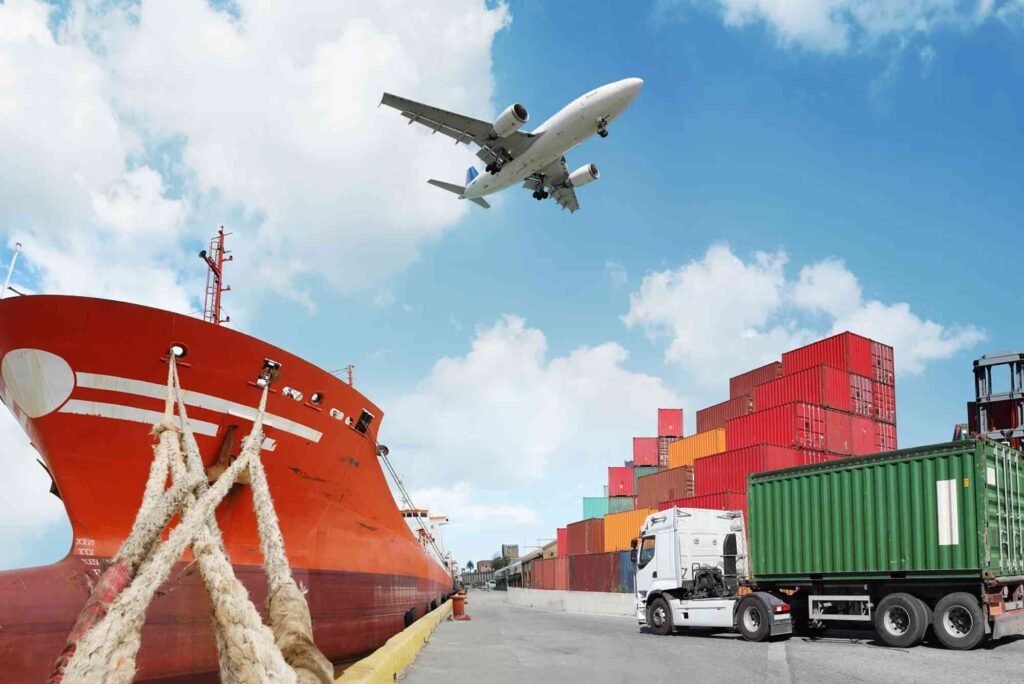Introduction
The logistics and cargo industry in Dubai plays a crucial role in facilitating global trade. As a major global business hub, the emirate’s cargo companies are tasked with navigating the complex landscape of international trade regulations. These regulations govern the movement of goods across borders, ensuring compliance with various laws and standards.
This article will explore how cargo companies in Dubai effectively manage these regulations, the steps they take to ensure compliance, and how they help businesses facilitate smooth import and export operations. It will also delve into the role of technology, partnerships, and infrastructure in making the process efficient.
Introduction to International Trade Regulations in Dubai
International trade regulations are designed to ensure that goods are transported safely, legally, and efficiently. These regulations differ from country to country, and in Dubai, which serves as a critical trade gateway between the East and the West, cargo companies must adhere to a set of local and international regulations. These rules are implemented by a variety of authorities, including government bodies and international organizations like the World Trade Organization (WTO) and the International Maritime Organization (IMO).
Dubai’s strategic location, world-class infrastructure, and robust legal framework make it an ideal location for international trade. However, navigating the intricate regulatory landscape requires a deep understanding of import-export laws, customs procedures, safety standards, and environmental regulations. As such, Dubai-based cargo companies must stay current with evolving regulations to stay competitive and ensure compliance.
The Role of Cargo Companies in Compliance with Trade Regulations
Cargo companies in Dubai play a vital role in helping businesses comply with international trade regulations. These companies are responsible for overseeing the movement of goods from one country to another, ensuring that all shipments comply with legal requirements. The steps involved in managing international trade regulations include:
Understanding Local and International Regulations
Cargo companies must be familiar with both local and international trade laws. Local regulations, such as those enforced by Dubai Customs and the UAE Ministry of Economy, ensure that goods entering or leaving the country meet the necessary safety, quality, and financial standards. International regulations, such as customs tariffs, trade agreements, and product-specific requirements, must also be followed to avoid fines or delays in shipment.
Documentation and Customs Clearance
One of the most critical aspects of managing international trade regulations is ensuring that all shipments are properly documented. This includes invoices, certificates of origin, packing lists, bills of lading, and import/export permits. Cargo companies assist businesses by preparing these documents and submitting them to the relevant customs authorities for clearance. The importance of accurate documentation cannot be overstated, as even minor discrepancies can lead to shipment delays or fines.
Safety and Environmental Compliance
Cargo companies must also ensure that their shipments comply with safety standards, including the handling of hazardous goods, packaging regulations, and environmental standards. This is especially relevant in sectors such as chemicals, pharmaceuticals, and electronics, where special requirements for storage and transportation are imposed. Compliance with these standards helps prevent accidents, reduce environmental impact, and meet international shipping requirements.
Tariffs and Duties Management
One of the main challenges of international trade is dealing with tariffs, customs duties, and taxes imposed by different countries. Cargo companies in Dubai assist in determining the applicable tariffs and calculating the total cost of goods entering or leaving the UAE. They also work with businesses to optimize tariff classifications and identify exemptions that may be available under trade agreements or customs procedures. This helps reduce the cost of doing business and ensures that shipments are processed without unnecessary delays.
The Role of Technology in Managing Trade Regulations
As international trade becomes increasingly complex, cargo companies in Dubai are turning to technology to streamline compliance and improve efficiency. Technology solutions such as customs management systems, digital documentation platforms, and automated cargo tracking systems play a crucial role in simplifying the management of international trade regulations.
Customs Management Systems
Advanced customs management systems help cargo companies process documentation faster and more accurately. These systems automate the submission of forms to customs authorities, track shipments in real-time, and ensure that all necessary information is included for compliance. By reducing human error and improving processing times, technology makes it easier for cargo companies to meet international trade regulations.
Digital Documentation Platforms
Paperless documentation is becoming more common in the logistics industry. Digital platforms allow cargo companies to manage and store documentation electronically, making it easier to retrieve and share information with customs authorities and other stakeholders. This not only improves efficiency but also helps companies maintain compliance with regulations related to data security and record-keeping.
Cargo Tracking Systems
Cargo tracking systems help both businesses and cargo companies monitor the movement of shipments in real-time. These systems provide updates on the location, status, and estimated arrival times of goods. By using tracking technology, cargo companies can quickly identify potential delays, resolve issues, and ensure that goods are transported according to schedule and in compliance with regulations.
Steps Cargo Companies Take to Ensure Compliance with International Trade Regulations
Cargo companies in Dubai follow several crucial steps to ensure they comply with international trade regulations. Each of these steps is vital for smooth, uninterrupted business operations.
Researching and Understanding Regulations
Cargo companies must start by thoroughly researching and understanding the regulations that govern international trade, both locally and internationally. This requires an up-to-date knowledge of tariff rates, duties, product classifications, and trade agreements between countries.
Accurate Documentation Preparation
Documentation is at the heart of international trade compliance. Companies must prepare the necessary import/export documents, including commercial invoices, certificates of origin, and any permits or licenses required for specific goods.
Coordination with Customs Authorities
Cargo companies must coordinate closely with customs authorities to ensure that all shipments are compliant. This involves submitting customs declarations, ensuring that goods are classified correctly for tariff purposes, and adhering to any safety or security regulations.
Optimizing Tariffs and Duties
Cargo companies help businesses navigate tariffs and duties by providing advice on optimizing tariff classifications, ensuring that goods are imported/exported at the lowest possible cost. This may involve leveraging trade agreements that offer preferential treatment or exemptions from certain duties.
Ongoing Monitoring and Reporting
Once goods are in transit, cargo companies monitor shipments to ensure they meet safety and regulatory standards. They also provide reports on the progress of shipments, helping businesses track the movement of goods and address any issues that arise during transport.
Best Practices for Cargo Companies in Dubai
Cargo companies that wish to remain competitive and compliant in the international trade market must adopt certain best practices. These include maintaining close relationships with regulatory bodies, investing in cutting-edge technology, offering customer education, and providing transparent communication with clients.
By incorporating these practices into their operations, cargo companies ensure that they are well-prepared to handle the complex landscape of international trade regulations.
Cargo companies in Dubai play an indispensable role in facilitating global trade by ensuring that all shipments adhere to international trade regulations. From understanding complex legal frameworks to implementing technology solutions, these companies help businesses navigate the intricacies of global commerce.
Whether it’s managing tariffs, ensuring safety compliance, or optimizing documentation, cargo companies in Dubai are equipped to handle every aspect of the import and export process. By relying on expert services like those provided by Best Import & Export Cargo Services in UAE, businesses can ensure their operations remain smooth and compliant with international laws.
Frequently Asked Questions (FAQs)
1. How can cargo companies in Dubai ensure compliance with international regulations?
Cargo companies in Dubai ensure compliance through thorough documentation, customs clearance procedures, and adherence to safety and environmental standards.
2. What role does technology play in managing trade regulations?
Technology helps cargo companies automate documentation, track shipments, and streamline customs clearance, ensuring compliance and improving efficiency.
3. How can I find the best cargo services in Dubai?
To find the best cargo services, look for companies with extensive experience, a proven track record in international trade, and robust technology infrastructure. Best Import & Export Cargo Services in UAE is a great option.








